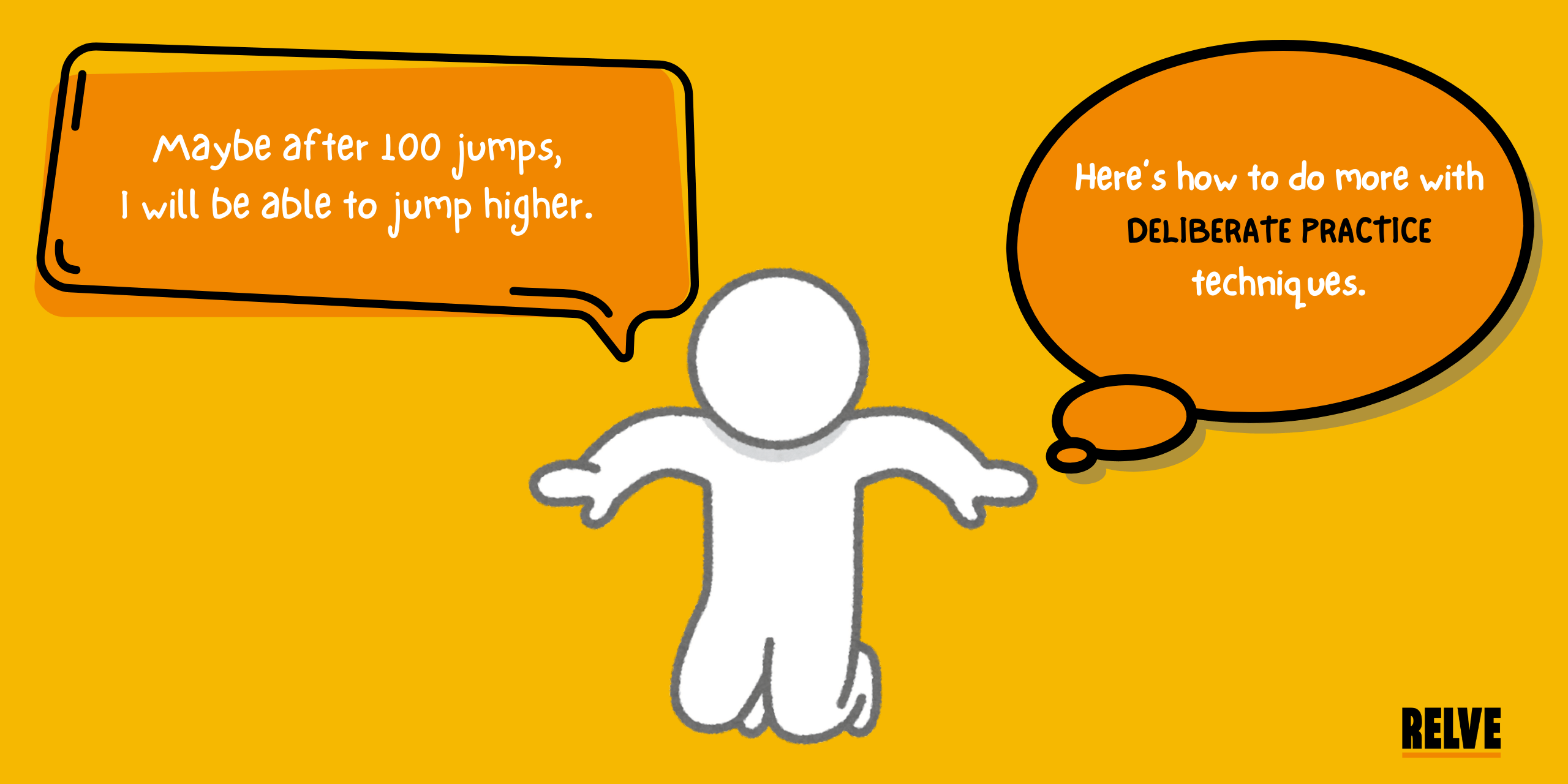Why do some people become experts while others plateau despite years of experience? The answer lies in deliberate practice – a structured, purposeful, and challenging approach to skill development. Unlike casual repetition, deliberate practice psychology focuses on pushing boundaries, receiving feedback, and refining skills with precision.
In this article, we will explore the principles of deliberate practice, its applications, and how you can integrate it into your personal and professional growth.
What Is Deliberate Practice?
Deliberate practice in a corporate setting is a structured and purposeful method of skill improvement that goes beyond regular work tasks or “learning by doing.”
It involves focused, repetitive practice of specific aspects of a role or competency—with immediate feedback, clear goals, and the intent to stretch beyond one’s comfort zone.
Examples of Deliberate Practice
The Key Principles of Deliberate Practice
Here’s how you can put deliberate practice into action:
How to Apply Deliberate Practice
The Science Behind Deliberate Practice Psychology
Scientific research confirms that innate talent alone does not determine expertise. Studies show that experts accumulate thousands of hours of deliberate training, refining skills through structured methodologies.
Daniel Pink, in Drive: The Surprising Truth About What Motivates Us, explains that the best performers are driven by “autonomy, mastery, and purpose,” all of which align perfectly with deliberate action.
This quote also highlights the power of sustained focus in mastering skills, reinforcing that deliberate thinking is essential for expertise.
Building a Perfect Deliberate Model for Your Growth
If you are serious about applying this model to your own life, follow these rules:
1. Set Clear Goals
Avoid vague aspirations like “I want to be better at coding.” Instead, define specific targets such as “I will write five algorithms per week and optimize them for efficiency.”
2. Work with a Mentor
Feedback accelerates progress. Seek deliberate coaching from an expert who can pinpoint your weaknesses and suggest actionable improvements.
3. Track and Analyze Progress
Use a journal or digital tracker to document what works and what needs adjustment. Deliberate practice psychology emphasizes reflection for continuous improvement.
4. Increase Complexity Gradually
Once a task becomes effortless, raise the difficulty level. Progress is made at the edge of your abilities, not within your comfort zone.
It Is Possible to Change a Habit by Deliberate Choice
Habits are often seen as automatic behaviors, but it is possible to change a habit by deliberate choice. This quote emphasizes the role of conscious effort in altering routines:
By being decisive, you can:
- Replace mindless browsing with deep learning sessions.
- Enhance productivity by structuring your work around focused intervals.
- Develop resilience by pushing through mental barriers.
Deliberate Practice in the Workplace
Organizations benefit immensely from programs that encourage skill development among employees. Google, for example, employs structured problem-solving sessions to refine innovation strategies. Likewise, Amazon’s leadership principles emphasize continuous deliberate action for operational excellence.
This underscores the importance of channeling efforts into intentional practice rather than aimless activity.
Overcoming Challenges in Deliberate Practice
This model isn’t all smooth sailing. Here are some common issues you will face as you try honing your skills and how you can overcome them:
Overcoming Challenges in Deliberate Practice
Lack of Motivation
Break goals into smaller wins and track visible progress.
Plateauing Progress
Switch up routines and focus on weaknesses systematically.
Poor Feedback Loops
Seek mentors or peers who give timely, actionable feedback.
Burnout or Fatigue
Use rest and reflection cycles as part of your routine.
Unclear Objectives
Set SMART goals with regular check-ins and refinement.
Conclusion: Embrace the Power of Deliberate Practice
Mastery is not reserved for the naturally gifted—it is accessible to anyone willing to engage in deliberate practice. Whether you aim to become a better musician, athlete, entrepreneur, or writer, the principles remain the same: structured effort, focused feedback, and relentless refinement.
